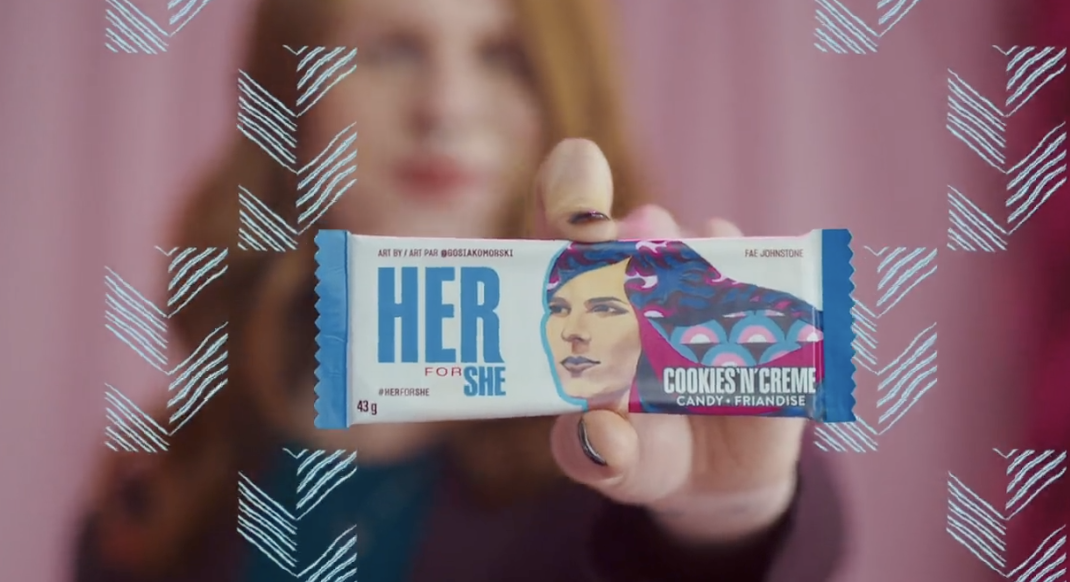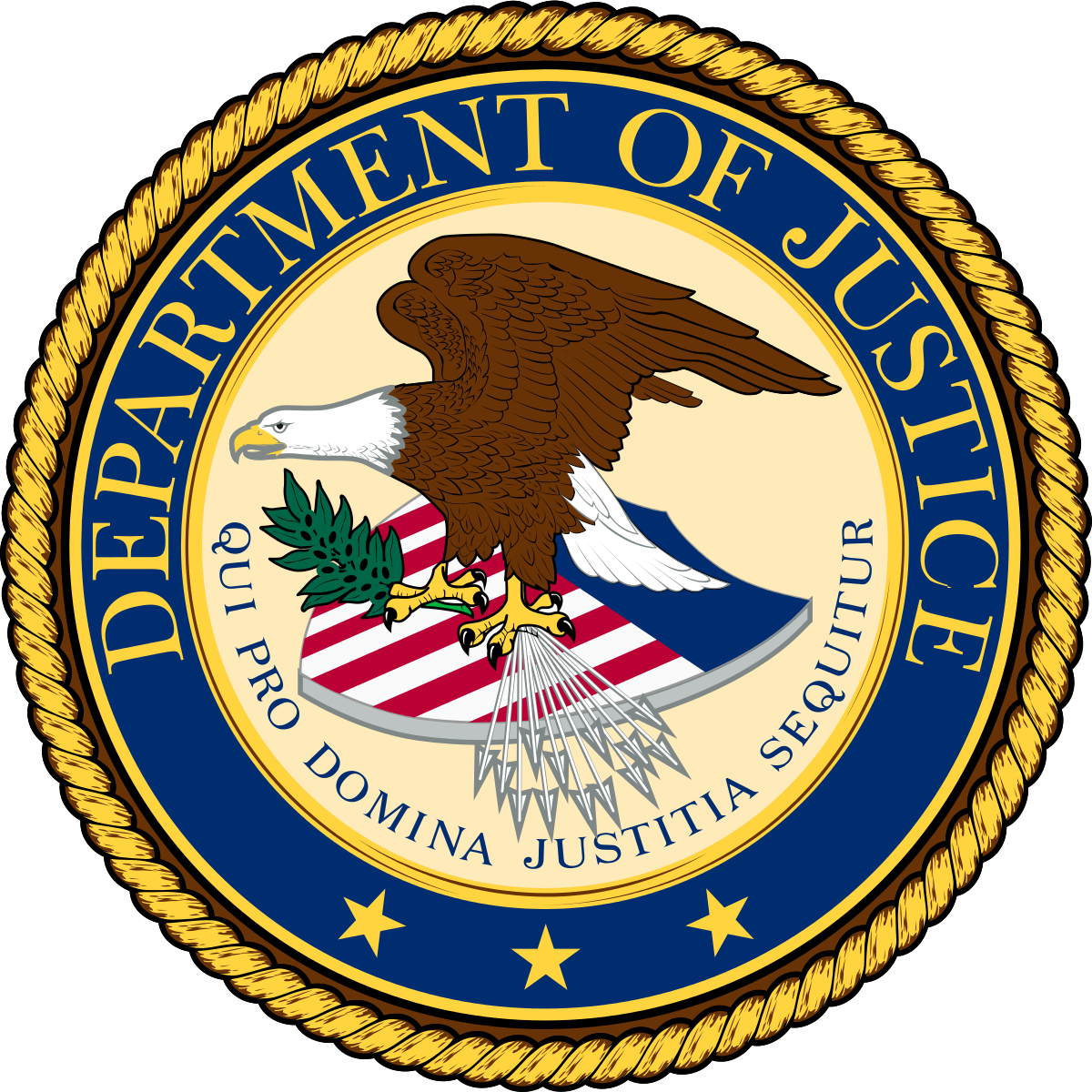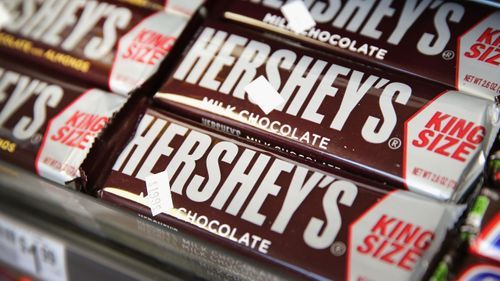
On Twitter, many are calling for a #BoycottHersheys in protest to the chocolate company’s International Women’s Day Canadian marketing, which features a trans woman.
It’s the latest example of a business eliciting a strong but divided response to a promotional effort that addresses cultural or social concerns.
On Wednesday, Fae Johnstone, a queer, trans, and feminist activist, tweeted about being included in the Her for Her campaign.
As a young(ish?) trans woman, it “means a lot to be included,” Johnstone wrote. “I had few trans role models growing up. Many young transgender people have never met a trans adult. I hope this ad demonstrates to young trans girls that they, too, can dream big and change the world.”
Start of #BoycottHersheys
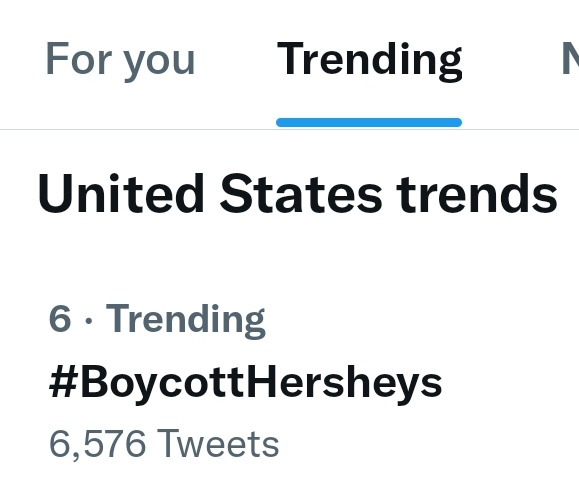
Johnstone’s postings drew praise and sympathy but also ired at Hershey, who often used anti-trans language. On Thursday, some used the hashtag #BoycottHersheys to express their displeasure with the marketing, while others used it to condemn the critics.
“We encourage unity and appreciate the power that diversity creates,” Hershey stated in a statement to CNN on the campaign’s response. “Our Women’s History Month programming has been an inclusive celebration of women and their contributions for the last three years. We are grateful to the many individuals and important relationships contributing to our initiatives.”
Politics plus promotions is a risky game
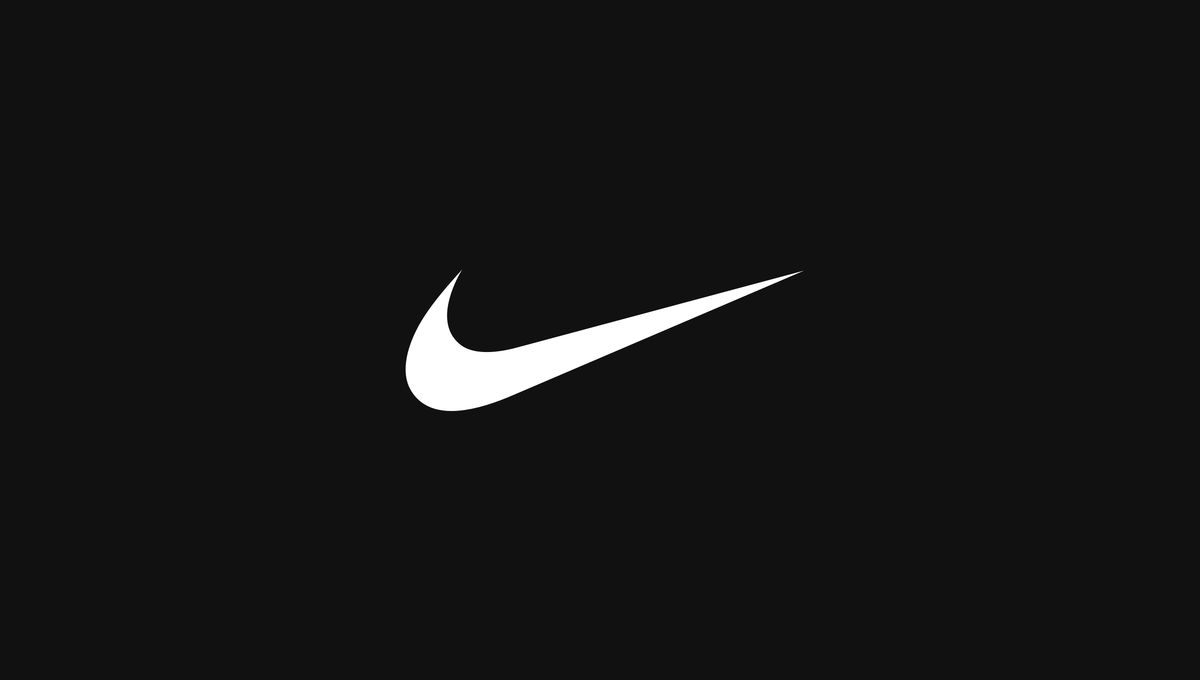
It’s not uncommon for businesses to face blowback for actions consumers perceive to be politically tinged.
Nike faced a boycott movement after using Colin Kaepernick in an ad in 2018 after the football star became contentious for kneeling during the national anthem to protest police brutality.
Most recently, right-wing critics chastised M&M’s for becoming “woke” when the candy company unveiled a new female “spoke candy” and featured her on M&M packaging as a marketing push.
Companies often connect themselves with specific ideals to attract consumers, particularly younger ones. Yet, this strategy may irritate those who disagree with the brand’s statement.
Hershey enlisted the help of five women activists, including Johnstone, for this campaign.
According to Hershey’s Her for Her website, Kélicia Massala and Rita Audi are both gender equality activists, while Naila Moloo is a climate tech researcher, and Autumn Peltier is an indigenous rights and water campaigner. The ladies each explain themselves and their job in a series of videos uploaded to the website. Limited-edition chocolate bars with unique packaging are also part of the promotion.
Although entering the political arena is dangerous for companies, it may pay handsomely.
According to a 2018 study, 52% of individuals aged 35-44 supported Nike’s usage of Kaepernick in their advertisements. Nike won an Emmy the following year for its Kaepernick ad. Yet Nike has not suffered financially due to the decision; the company’s stock has increased by almost 80% since 2018.





